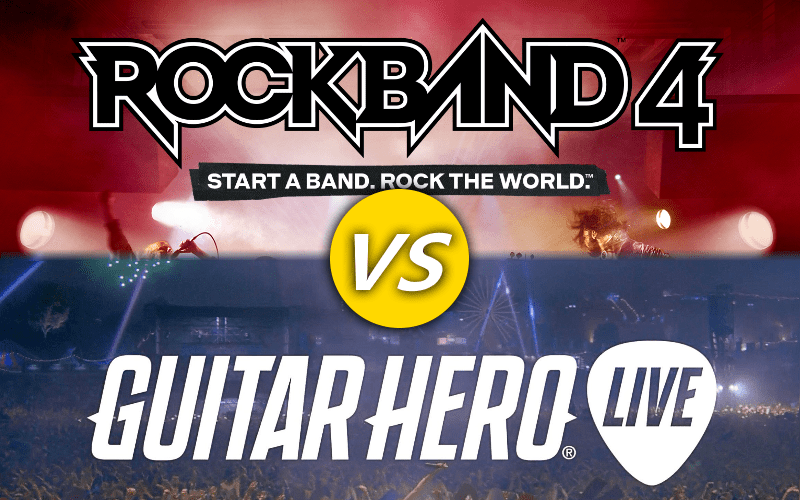Reviving the once-believed-to-be-dead rhythm genre, Guitar Hero Live and Rock Band 4 have been rivals ever since plastic guitars in the living room became the new fad. Now, with over a four-year hiatus, both franchises have returned in the hopes of recapturing the magic of peripheral-based music games and convincing you to purchase those expensive bundles for the holiday season.
So which game reigns supreme? And which game deserves your hard-earned dollars? Let the duel begin!
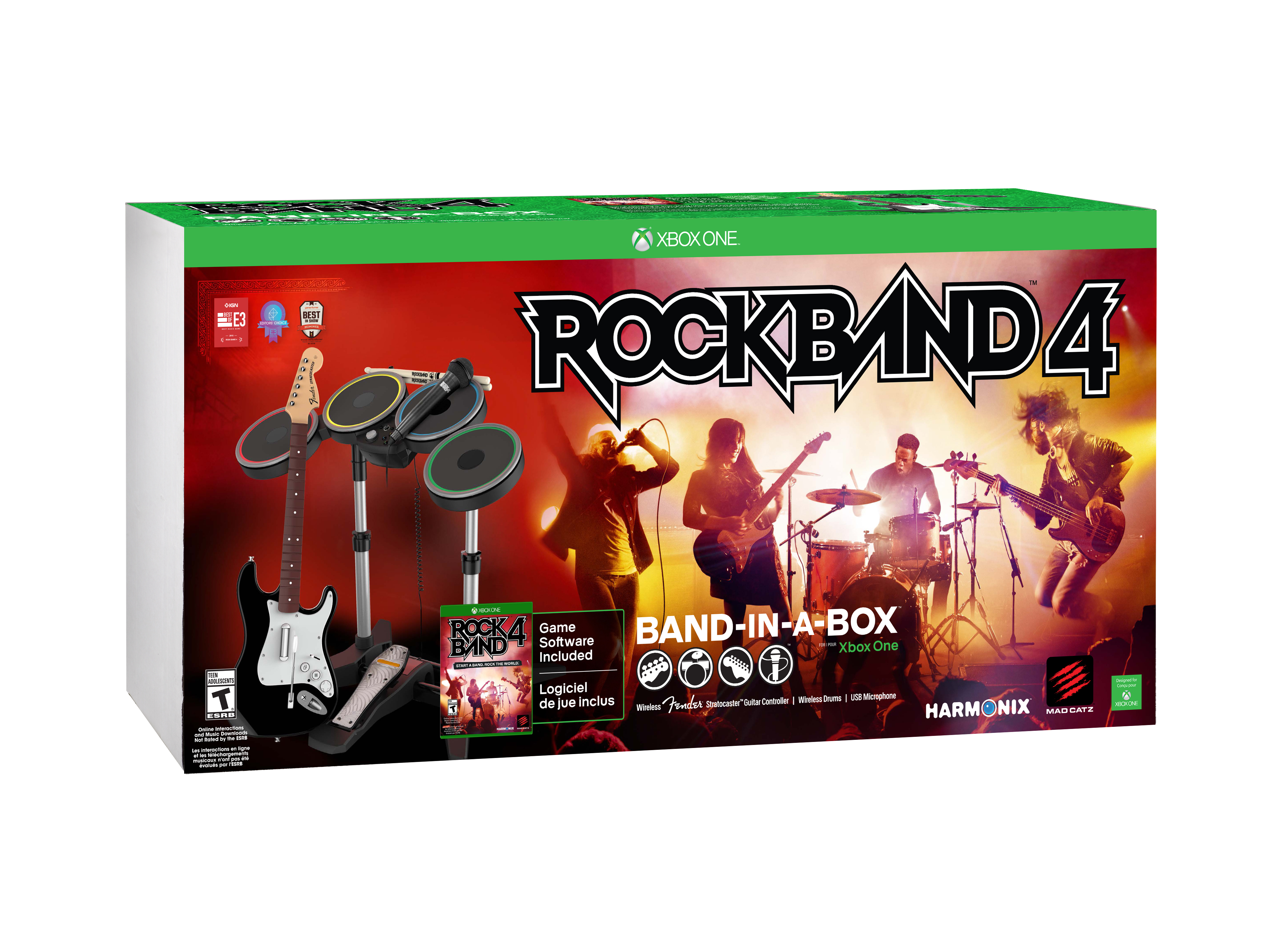
Cost
On paper, it would seem that Guitar Hero Live would take this category based solely on price. The Guitar Hero Live bundle with two guitars costs $149.96 whereas the full Rock Band 4 bundle costs a hundred dollars more at $249.99. Even when it comes to a single guitar, Guitar Hero Live hits thirty dollars less at $99.99 compared to Rock Band 4's $129.99.
But if you have any legacy instruments for Rock Band that are still in working condition after all these years in your closet (or you can probably purchase pre-owned legacy instruments for cheap), then that cuts costs down tremendously. Yes, the newer models for the drumset and the guitar made by MadCatz are sturdier than prior models, but if you have a mic, drumset, and two guitars from past games (I've got at least two full Rock Band sets in storage), then all this costs you is just one retail copy of Rock Band 4. Guitar Hero Live requires you to purchase at least one of its new guitars.
If it's any indication, you can also depend on Harmonix to continue supporting its instruments moving forward. I can envision Guitar Hero Live's six-button guitar being expanded to include one, perhaps even two, additional rows to become an eight- or ten-button guitar in the future, which would require you to purchase new guitars all over again.
Winner: Rock Band 4
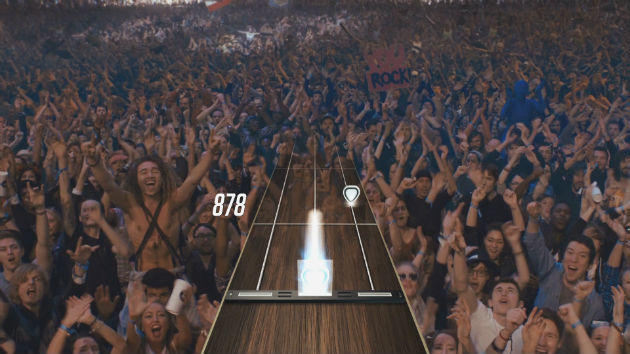
Innovation
The only real upgrade in Rock Band 4 is the inclusion of freestyle guitar solos, where you can replace those tricky guitar solos with more freeform strumming that will have your fingers move wildly between the top five frets and the bottom five frets. Guitar Hero Live's guitar has your hand stuck in essentially one place the entire time. The downside, though, is that if you're looking to score points, you're better off turning freestyle guitar solos off so that you can hit as many notes as possible.
Guitar Hero Live, on the other hand, introduces several threads of technological prowess. First of course is the six-button guitar that has you move across the neck of the guitar. Second, the game's Live mode makes you feel like you're on a real stage with real musicians and real crowds, who both react to your performance. It's a gimmick that isn't entirely realistic when you delve into it, but it's the kind of innovation that anyone watching your screen can appreciate at first glance.
Last but not least, Guitar Hero TV allows you to stream the genuine music videos paired with the song in its catalog by spending Play tokens. Earning Play tokens is far more complicated than it needs to be, but again, this is one aspect where people watching you play on the couch will immediately recognize how cool the music videos are. The RPG elements of Guitar Hero TV aren't lost either, continuously rewarding you for playing the mode and adding interesting in-game boosts.
Winner: Guitar Hero Live
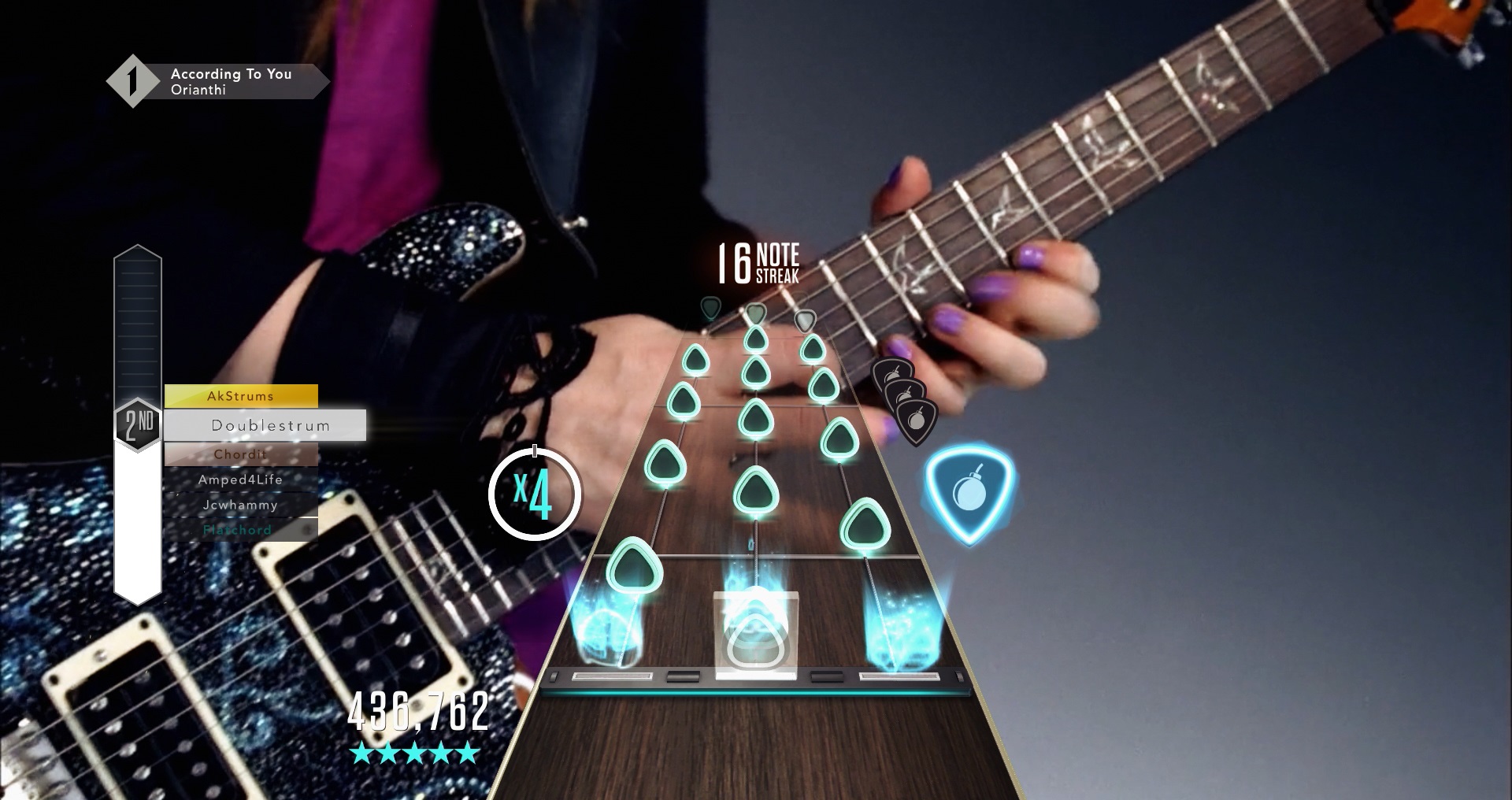
Challenge
It's goes without saying that Guitar Hero Live's six-button guitar is far more complex than Rock Band 4's guitar, which hasn't really changed since. Recognizing notes as they scroll down the screen in Guitar Hero Live is extremely difficult, with Expert difficulty asking you to switch between rows and chords in tricky ways that will make your hand melt. Let's have three-note chords connected by open strums and then put in a crazy solo in the middle of it. Veteran Guitar Hero will spend hours perfecting Live's new button layout.
In Guitar Hero TV, your scores are also compared against a host of other players who are streaming the game at the same time as you are, where as Rock Band 4 doesn't really have an online mode whatsoever yet.
That said, Guitar Hero Live may actually be too challenging for most players. If you're far more familiar with the traditional five-button layout, where one lane on the screen corresponds to one and only one fret, then Rock Band 4 is just about as challenging as it needs to be. Also don't forget that Rock Band 4 still supports Pro Drums, which remains incredibly difficult.
Winner: Guitar Hero Live
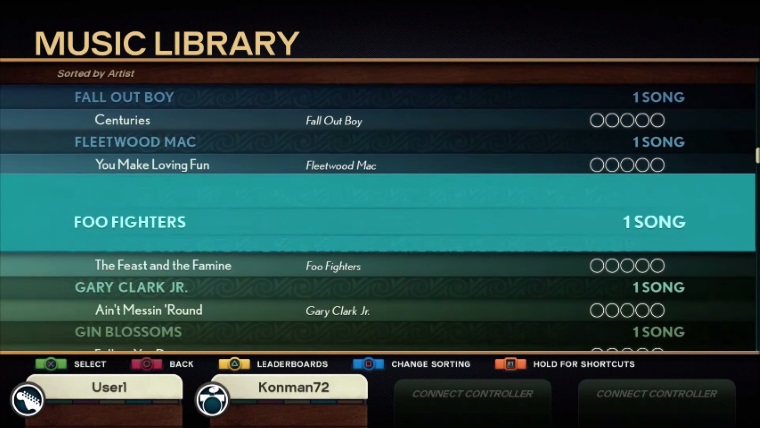
Lasting Value
Both Guitar Hero Live and Rock Band 4 promises continual support and updates for their respective rhythm games. Guitar Hero Live will expand their Live catalog for free and will be introducing a versus Rivals mode, whereas Rock Band 4 promises to introduce online multiplayer and an exhaustive list of DLC. Guitar Hero TV does have premium setlists and an ever expanding catalog of music, but these premium setlists will fall out of rotation and there's no guarantee that GHTV's music library will be carried over to the next game.
Currently, Rock Band 4 has an incredible library of songs in its Rock Band Store, over 1,500 in face. And if you've purchased any of these songs for a prior Rock Band game, chances are that they will be compatible in Rock Band 4 as well, so long as you downloaded them within the same family of consoles. For me, that meant about 400 extra songs right out of the gate when Rock Band 4 released, and that number will continue to grow as more DLC packs are revealed. Harmonix has been fantastic so far when it comes to DLC compatible so we can expect that that Rock Band 5 will continue this positive practice.
Winner: Rock Band 4
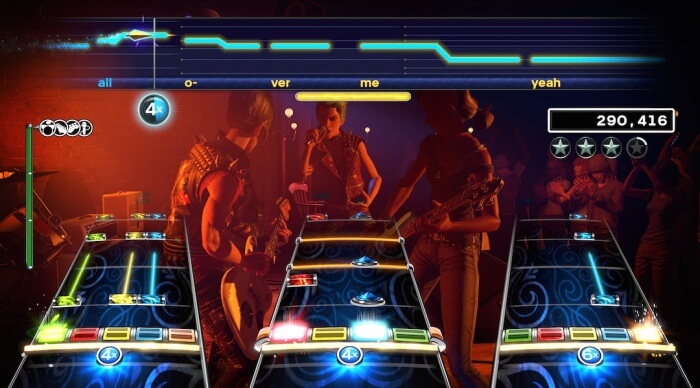
Multiplayer
Between the two, Rock Band 4 is the winner for parties, mainly because it can support up to six players if you include three-part vocal harmonies but also because it's a co-operative experience. Guitar Hero Live doesn't have a relatively extensive catalog in its Live mode, and while the catalogue for GHTV is over 200 songs, it's limited by the number of Play tokens you have. You can purchase a 24-hour pass for parties to stream as many GHTV songs as you want within that time, but it's a pass that Rock Band 4 doesn't require whatsoever.
Guitar Hero Live is a single-player affair and two-player experiences are mainly framed in a versus relationship. Of course, if that's what you're looking for and you're stimulated by the hunt for getting the highest score possible, then GHL is the way to go. GHTV has RPG elements that increase your multiplier, the points for each note, and the number of notes it takes to reach the next multiplayer – a whole assortment of ways to be the top player in the world.
Winner: Both – Rock Band 4 for Local Cooperative, Guitar Hero Live for Online Competitive
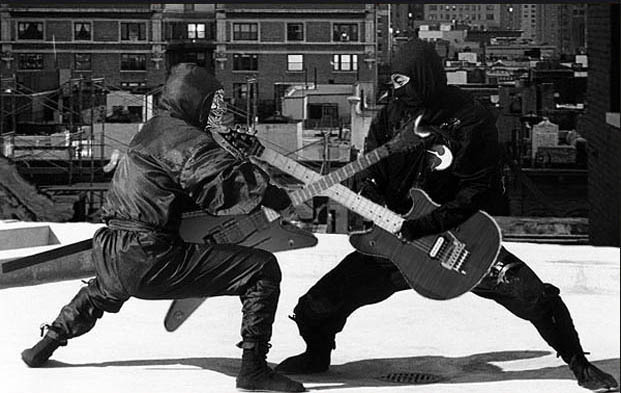
Conclusion
Rock Band 4 is perfect for players who want a cooperative multiplayer experience that's familiar and has lasting value, whereas Guitar Hero Live is best for players who want a single-player score-chasing experience that's innovative and has incredible production value. Maybe one day we can combine the two together to create "Rock Hero", and we would have the ideal rhythm game, but for now, the competition between Rock Band and Guitar Hero is fantastic for competition and for advancing the now revived rhythm genre.
Just choose carefully, folks. Those price tags is no joke.
